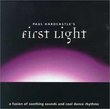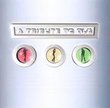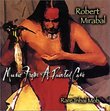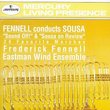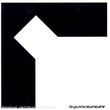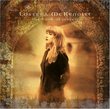| All Artists: Hans Pfitzner, Rafael Kubelik, Bavarian Radio Symphony Orchestra, Symphonie Orchester des Bayerischen Rundfunks, Albert Gaßner, Anton Rosner, Bernd Weikl, Brigitte Fassbaender, Dietrich Fischer-Dieskau, Erika Ruggeberg, Franz Mazura, Friedrich Lenz, Gerd Nienstedt, Gudrun Rosner-Greindl, Heinrich Weber, Helen Donath, Heribert Steinbach, Hermann Prey, Irmgard Lampart, John van Kesteren Title: Hans Pfitzner: Palestrina Members Wishing: 0 Total Copies: 0 Label: Deutsche Grammophon Release Date: 7/21/1989 Album Type: Box set, Original recording reissued Genre: Classical Styles: Opera & Classical Vocal, Historical Periods, Modern, 20th, & 21st Century Number of Discs: 3 SwapaCD Credits: 3 UPC: 028942741720 |
Search - Hans Pfitzner, Rafael Kubelik, Bavarian Radio Symphony Orchestra :: Hans Pfitzner: Palestrina
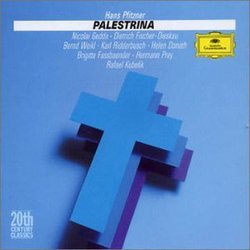 | Hans Pfitzner, Rafael Kubelik, Bavarian Radio Symphony Orchestra Hans Pfitzner: Palestrina Genre: Classical
|
Larger Image |
CD DetailsSimilar CDs
Similarly Requested CDs
|
CD ReviewsUnderrated opera: great performance Klingsor Tristan | Suffolk | 08/17/2005 (5 out of 5 stars) "Palestrina was an opera that fascinated me long before I heard it. From all I'd read, it seemed to be one of a select group of operas, dealing with the actual process of artistic creation (Benvenuto Cellini, Die Meistersinger, Mathis der Mahler, Death in Venice to name but a few). Someone, after a performance of Parsifal in Bayreuth, once also described it to me as 'Parsifal without the jokes' - a phrase attributed to several pieces and not true in this case as there are quite a lot of jokes, albeit German jokes, in Act 2. The music, I was told, purported to be post-Wagnerian conservative but well made. The Preludes to all three acts I heard fairly early on and they whetted my appetite even more - Parsifalian simplicity in the first, thrilling energy in the second and sublime resignation in the third. Then this Kubelik recording came along and I found all my hopes and expectations matched or bettered. Yes, it is dramatically flawed - the scene between Borromeo and Palestrina in the First Act is too long and Act 2 is dramatically very far removed from the two outer acts, brimming over with characters none of whom, apart from a brief appearance by Borromeo, appear in the other two acts. Act 3 is proportionally very short. Nevertheless, it does hang together in its own way (witness the Covent Garden production of a few years ago). And musically it is a profound experience. Pfitzner was not necessarily a very likeable man: his politics came a lot closer to the Nazis than either Richard Strauss's or Furtwangler's, for example - probably closer to Karajan's. And his music was also pretty conservative (with a small 'c') - not so far from Strauss, closer still to Reger though much more interesting. Indeed he felt himself on something of a mission to preserve the Great Tradition of High German Art - Sachs's Heil'ge Deutsches Kunst if you like. But within the confines that he set himself, he wrote some really wonderful stuff. Late Romantic harmonies (nothing too frightening) with some superb melodic invention gives you an idea of the style. The whole sequence in which Palestrina writes his great polyphony-saving Mass, inspired by visions of his dead wife and angels (yes, I know it sounds mawkish, but it works) is superb. Pfitzner handles a huge cast of soloists in Act 2 with superb dexterity and energy as discussions descend to rows to battles and finally to a riot that is ruthlessly put down. The very end of the opera is inspired. Left alone in his moment of triumph by Pope and Cardinal, son and pupil and by the cheering crowds in the street, the old composer's hands begin to improvise on the keyboard of his organ - fade to silence and to black. This is great opera and deserves to be better known. And, in this recording, all the performers play it as if they believe exactly that. The supremely versatile Gedda sings the title-role with all the fervour, the passion and ultimately the resignation that it demands. The other substantial part, Cardinal Borromeo, is taken by the ubiquitous Fischer-Dieskau and he gives one of his great performances; obstinate, angry, dangerous, sympathetic by turns as the score and the text demand. That long solo in Act 1 that can easily outstay its welcome: here it is completely involving and dramatic. The numerous clergy and politicians at the Council of Trent in Act 2 are cast with real strength throughout. And Kubelik's conducting is masterful, allowing the score to breathe and take its time without ever getting stagnant and giving real drive and energy to the more urgent pages. If you have anything of a taste for German romantic opera, if you enjoy Strauss's operas for example, I do urge you to try Pfitzner's masterpiece. " An inadequate work given with great conviction Santa Fe Listener | Santa Fe, NM USA | 01/07/2007 (3 out of 5 stars) "The review below is civilized and tolerant almost to a fault. I, too, anticipated something rare and fascinating from Pfitzner's masterpiece, which has a strong stage history in Germany but almost zero in the U.S. But in my case the expectations weren't fulfilled--this is ultra-conservative music that shows not the slightest influence of the twentieth centruy. The idiom resembles seamless, uninspired movie music, assuming the movie in question has almost no action and endless duets and monologues on arcane subjects of interest only to Jesuits and historicans of the Vatican's dicta on church music.
That said, the performance is a knockout. This could well be Fischer-Dieskau's most impressive opera portrayal (he had a habit of excelling in oddball operas--see Mathis der Maler); Gedda, fasbaender, and the rest of the cast sing with equal conviction. Kubelik is close to an ideal conductor. And yet there really is no drama here for the listener who can't see the stage. Maybe that's the secret of Palestrina--it needs a stage production to capture the eye. That's true of Die Frau ohne Schatten, Die Tote Stadt, and other operas that are congested and over-composed--they must come alive visually to reveal their potential." |

 Track Listings (12) - Disc #1
Track Listings (12) - Disc #1
